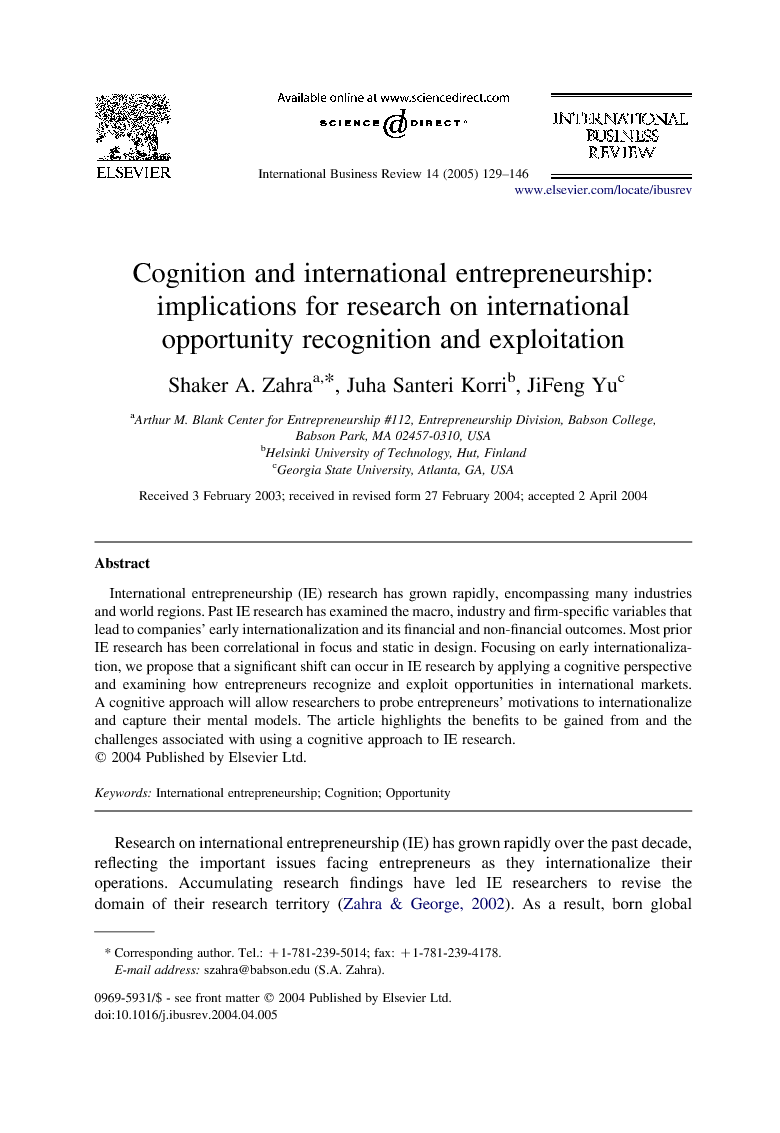ترجمه فارسی عنوان مقاله
شناخت و کارآفرینی بین المللی: مفاهیمی برای تحقیق در شناخت فرصت های بین المللی و بهره برداری
عنوان انگلیسی
Cognition and international entrepreneurship: implications for research on international opportunity recognition and exploitation
| کد مقاله | سال انتشار | تعداد صفحات مقاله انگلیسی |
|---|---|---|
| 20268 | 2005 | 18 صفحه PDF |
منبع

Publisher : Elsevier - Science Direct (الزویر - ساینس دایرکت)
Journal : International Business Review, Volume 14, Issue 2, April 2005, Pages 129–146
ترجمه کلمات کلیدی
کارآفرینی بین المللی -
شناخت -
فرصت
کلمات کلیدی انگلیسی
International entrepreneurship,
Cognition,
Opportunity,

